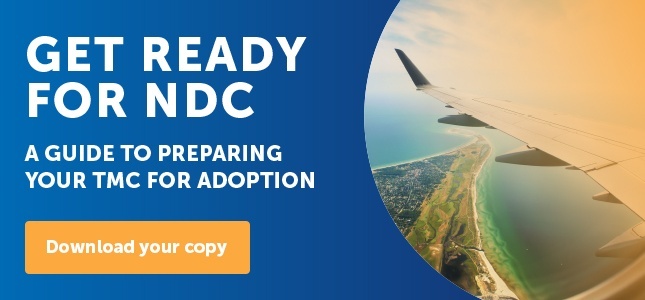
In recent years, you could be forgiven for thinking that the term ‘direct-booking’ strikes fear into the hearts of online travel agents everywhere. The tussle for dominance between hoteliers and OTAs has been presented as a fierce battle that's shaking the very core of the travel industry. However, a thorough examination of the facts reveals that it isn’t. Not even close. In fact, outside of the US at least, it’s actually more a playground spat than an epic war.
Direct-Booking Affray
The premise of the direct-booking war is easily understood. Global hotel chains are vying to minimise rising commission costs and reduce reliance on OTAs by encouraging travellers to book directly. Meanwhile the OTAs attempt to grow their market share percentage and increase sales through direct channels.
When you take into account that the global travel industry is estimated to be worth over 2.5 trillion USD, is driven forward by technological advancements like the NDC Standard, and is currently the fastest growing sector in the world, it becomes even easier to understand the desire for dominance. But, no matter the reasons behind the conflict, it’s having very little impact on the European market.
A European Fable
A recent Skift article attempted to explain why the so-called direct-booking war was failing. To summarise, Europe and other world hotel markets are too fragmented.
In Europe, more than three-quarters of hotels are run independently, while the proportion in the US is under 40%. Over the pond, it’s the large hotel companies that control market share and have the capacity to entice people to their in-house booking channel. Here in Europe, hotels rely heavily on online travel companies to work as an extension of their company and supply them with bookings.
No matter the strategies employed throughout Europe, attempting to move the needle one way or the other has been a fruitless endeavour. Although, not for lack of trying.
Tactical Stalemate
Hotel brand leaders and global online travel agents have been battling it out on a micro, macro, and global scale.
In an unprecedented move, hotel giants Hilton and Marriott launched extensive, targeted marketing campaigns against intermediary bookings. Hyatt Hotels & Resorts joined the fray by threatening to abandon Expedia and its extensive partner network. Then brands from all across the industry began to offer lower nightly rates and other perks to direct bookers.
Not to be outdone, OTAs retaliated by exercising a practice called dimming, whereby a hotel’s appearance is deliberately minimised and its ranking lowered. The process invariably leads to a reduction in the number of intermediary bookings for the targeted hotels.
The level of scheming on display is nothing short of devious, but as is often the way in travel – take the NDC for example – the progress made has lacked the same vigour. Across the globe, the reaction to this spat has been muted, aside from one place: the USA.
United States of Direct Booking
From May 2016 to May 2017, according to new bookings data from Hitwise, throughout the US, Marriott increased its share of direct bookings by 1.07%, while Hilton's share of online bookings rose by 0.82%.
While this may not seem like remarkable progress, it's worth remembering that within a 2.5 trillion USD industry, increasing bookings by only a percentage point can have a serious impact on the bottom line – a justification as to why hoteliers have been campaigning so ferociously.
While on the surface this may appear to be a victory for the global hotel industry, speaking at Phocuswright Europe, Guillaume De Marcillac, Co-Chief Executive at Fastbooking revealed the real story: "Direct booking is growing, which is fine, but globally speaking if you take the macro numbers, OTAs and indirect distribution continues to grow way faster."
The Future of Travel
The so-called direct-booking war has raged for years. On one side: hotel brand leaders such as Marriott and Hilton. On the other: global online travel agents like Priceline Group and Expedia. The battle: market share of global booking channels.
In the future, control over direct booking may come to make or break hoteliers and OTAs. But, for now, the war itself is an American affair. Even taking into account the underhand tactics and vicious fighting styles, neither side of the conflict is any closer to influencing opinions throughout the rest of the world – especially Europe.
While it is true that the direct-booking war has had minimal impact on TMCs so far, the feud could pose a risk to travel in the future. To gain insight into another development set to disrupt the future of travel, why not download "Get Ready for NDC: A Guide to Preparing Your TMC for Adoption."?

